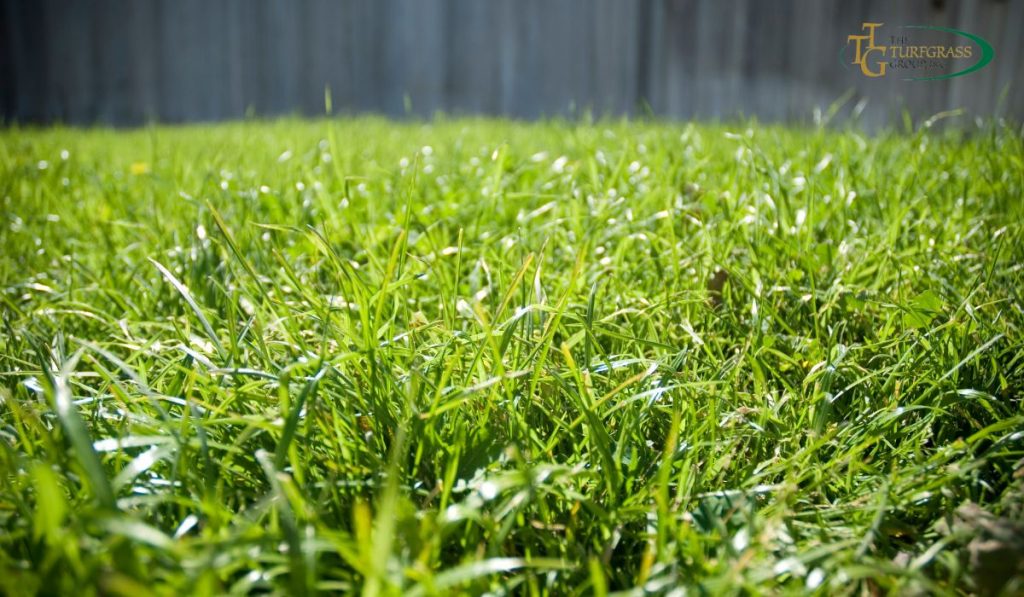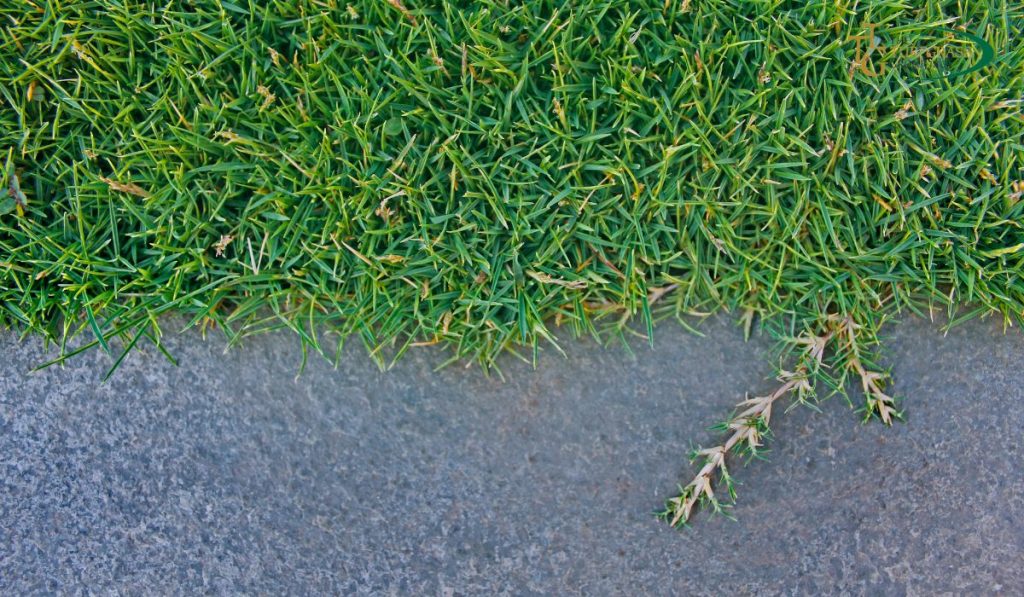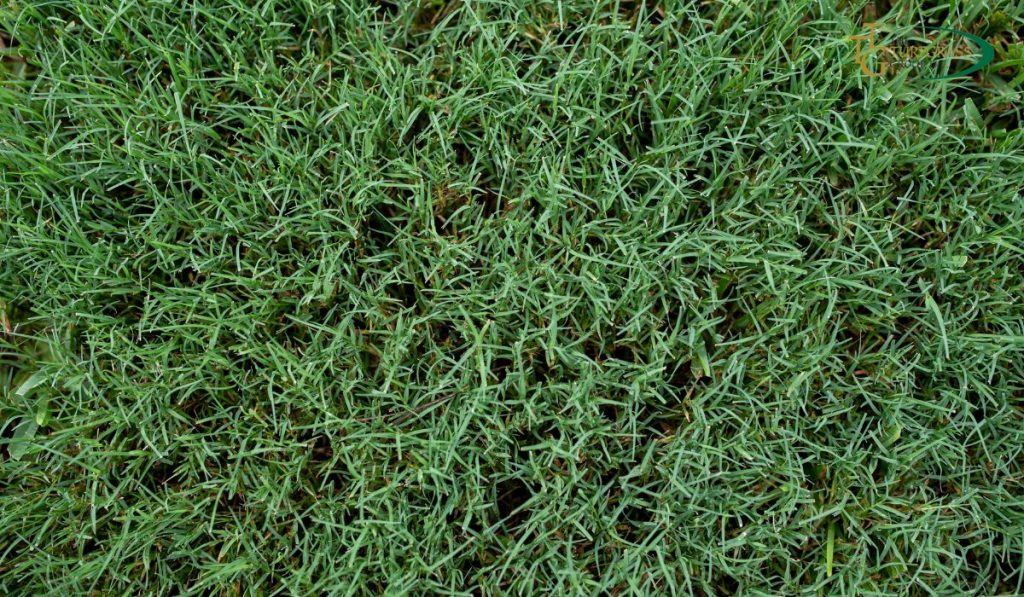
Bermuda Grass vs. Fescue: Find the Perfect Fit for Your Lawn
When selecting the suitable grass for your lawn, choosing between Bermuda grass and Fescue grass can be a significant decision. Each type of grass has its characteristics and suitability for different environments. In this article, we will dive into the key differences and factors to consider when choosing between Bermuda grass and Fescue grass.
Understanding The Bermuda Grass
Bermuda grass, scientifically known as Cynodon dactylon, is a warm-season grass that thrives in hot and humid climates. It is known for its ability to withstand high temperatures, drought, and heavy foot traffic. Bermuda grass has a deep green color & a dense growth habit, making it an excellent choice for lawns, sports fields, and golf courses. It spreads through both stolons and rhizomes, enabling it to recover quickly from damage or wear.
Understanding The Tall Fescue Grass
Tall Fescue grass, scientifically known as Festuca arundinacea, is a cool-season grass that performs well in areas with moderate temperatures and sufficient rainfall. It has a coarser texture than Bermuda grass and a distinct bunching growth habit. Tall Fescue is known for its durability, shade tolerance, and ability to maintain its green color during cooler seasons. It is commonly used in lawns, parks, and areas with partial shade.
Difference Between Fescue And Bermuda Grass
The differences between Fescue grass and Bermuda grass go beyond their growth habits and preferred climates. Here are some key distinctions to consider:
- Climate Adaptability: Bermuda grass thrives in warm environments, while Tall Fescue is better suited for cooler regions.
- Water Requirements: Bermuda grass has excellent drought tolerance and can survive with less water, while Fescue grass requires more water to maintain its lush appearance.
- Sunlight Needs: Bermuda grass thrives in full sun and may struggle in shaded areas, while Fescue grass performs better in partially shady environments.
- Maintenance: Bermuda grass requires more frequent mowing and regular maintenance, while Fescue grass has a slower growth rate and needs less upkeep.
- Traffic Tolerance: Bermuda grass is more tolerant of heavy foot traffic and can recover quickly from damage, whereas Fescue grass is less resilient and may suffer in high-traffic areas.

Choosing The Right Grass Type For Your Lawn
When choosing between Bermuda grass and Fescue grass, several factors should be considered, such as:
- Climate: Assess your local environment and choose a grass type that thrives in those conditions.
- Sunlight: Determine the sunlight your lawn receives to select a grass type that matches the sun exposure.
- Water Availability: Consider the water availability in your area and choose a grass type that aligns with your water conservation goals.
- Maintenance Preference: Evaluate your willingness and ability to commit to maintenance tasks, including mowing, watering, and fertilizing.
- Intended Use: Consider the primary purpose of your lawn, whether it’s for aesthetics, recreation, or specific activities.
By analyzing these factors and understanding the characteristics of Bermuda grass and Fescue grass, you can make an informed resolution that suits your needs & preferences.
Conclusion
In the Bermuda grass vs. Fescue grass debate, there is no definitive “better” option. It all depends on your location, climate, desired maintenance level, and intended use of the lawn. Bermuda grass excels in warm temperatures, while Fescue grass performs well in cooler regions. Consider the unique characteristics of each grass type and select the one that aligns with your specific requirements.
FAQs
Which grass is better, Bermuda or Fescue?
The choice between Bermuda grass and Fescue grass depends on various factors. Bermuda grass is better suited for warm climates and high-traffic areas, while Fescue grass performs well in cooler regions and partial shade.
Is Fescue or Bermuda easier to grow?
Fescue grass is generally considered easier to grow compared to Bermuda grass. Fescue has a slower growth rate and requires less maintenance, making it more forgiving for novice gardeners.
What are the downsides of Bermuda grass?
While Bermuda grass has many benefits, there are a few downsides. It can be invasive and may spread to unwanted areas of your garden. Additionally, it requires regular mowing and can be challenging to control in cooler climates.
How does Fescue compare to Bermuda?
Fescue grass and Bermuda grass have distinct differences. Fescue is a cool-season grass with better shade tolerance and a slower growth rate. Bermuda grass is a warming-season grass that thrives in full sun and has excellent drought tolerance.
Is it OK to mix Bermuda & Fescue?
Mixing Bermuda grass and Fescue grass in the same area is generally not recommended. They have different growth habits and maintenance requirements, leading to an uneven and inconsistent appearance on your lawn.
What are the disadvantages of Fescue grass?
While Fescue grass has its advantages, it also has a few disadvantages. It can be susceptible to certain diseases and struggle in areas with high temperatures or heavy foot traffic.
Will Bermuda grass overtake Fescue?
Bermuda grass has a vigorous growth habit and can quickly overtake Fescue grass if the conditions are favorable. Proper maintenance and containment measures are necessary to prevent Bermuda grass from invading Fescue areas.

Will Bermuda grass take over a Fescue lawn?
If left unchecked, Bermuda grass can gradually take over a Fescue lawn. Regular maintenance, such as edging and vigilant control measures, is essential to prevent Bermuda grass encroaching on Fescue areas.
What is the most demanding grass to grow?
Tall Fescue is considered one of the toughest grasses to grow. It has excellent adaptability and durability and can withstand challenging growing conditions such as heavy foot traffic and moderate shade.
What grass is better than Bermuda?
This question has no definitive answer, as the “better” grass depends on specific requirements and environmental factors. However, some grasses often compared to Bermuda grass include Zoysia grass and St. Augustine grass, known for their durability and adaptability.
What are the advantages of a Fescue lawn?
Fescue grass offers several advantages, such as its ability to thrive in cooler climates, shade tolerance, and lower water requirements than Bermuda grass. It also maintains its green color during cooler seasons.
What is the advantage of Bermuda grass?
Bermuda grass has several advantages, including its excellent drought tolerance, ability to withstand high temperatures, and resilience to heavy foot traffic. It can create a lush, vibrant lawn in warm climates.
What grass will choke out Bermuda?
Tall Fescue is one of the grass types that can compete with Bermuda grass and potentially choke it out in certain conditions. However, it requires proper management and maintenance to suppress Bermuda grass effectively.
Should I seed Bermuda with Fescue?
It is not recommended to seed Bermuda grass and Fescue grass together. They have different growth habits and care requirements, which can result in an uneven and inconsistent lawn appearance.
Will Fescue seed grow on top of the soil?
Fescue seeds can germinate and grow on top of the soil. Still, it is generally beneficial to lightly rake or cover the bases with a thin layer of soil or compost to improve seed-to-soil contact and enhance germination.
What is the best grass to mix with Fescue?
Fine fescue varieties like Chewings fescue or Creeping red Fescue are often mixed with Tall Fescue to create a more diverse and visually appealing lawn.
Do you need to seed Fescue every year?
Seeding Fescue every year is not necessary. However, overseeding every few years can help rejuvenate thin or damaged areas and maintain a healthy and dense Fescue lawn.
Will Bermuda grass choke out weeds and other grass?
Bermuda grass has excellent spreading abilities and can often outcompete weeds and other grasses. However, proper maintenance practices, such as regular mowing and weed control, are still necessary to keep the lawn healthy and weed-free.
Will Fescue choke out other grass?
Fescue grass has a clumping growth habit, which makes it less likely to choke out other grasses. However, it can compete with and suppress the growth of weaker grass species under certain conditions.
How do I switch from Bermuda to Fescue?
Switching from Bermuda grass to Fescue grass requires careful planning and execution. It typically involves herbicide treatment to kill off the Bermuda grass, followed by proper soil preparation and overseeding with Fescue grass seed.